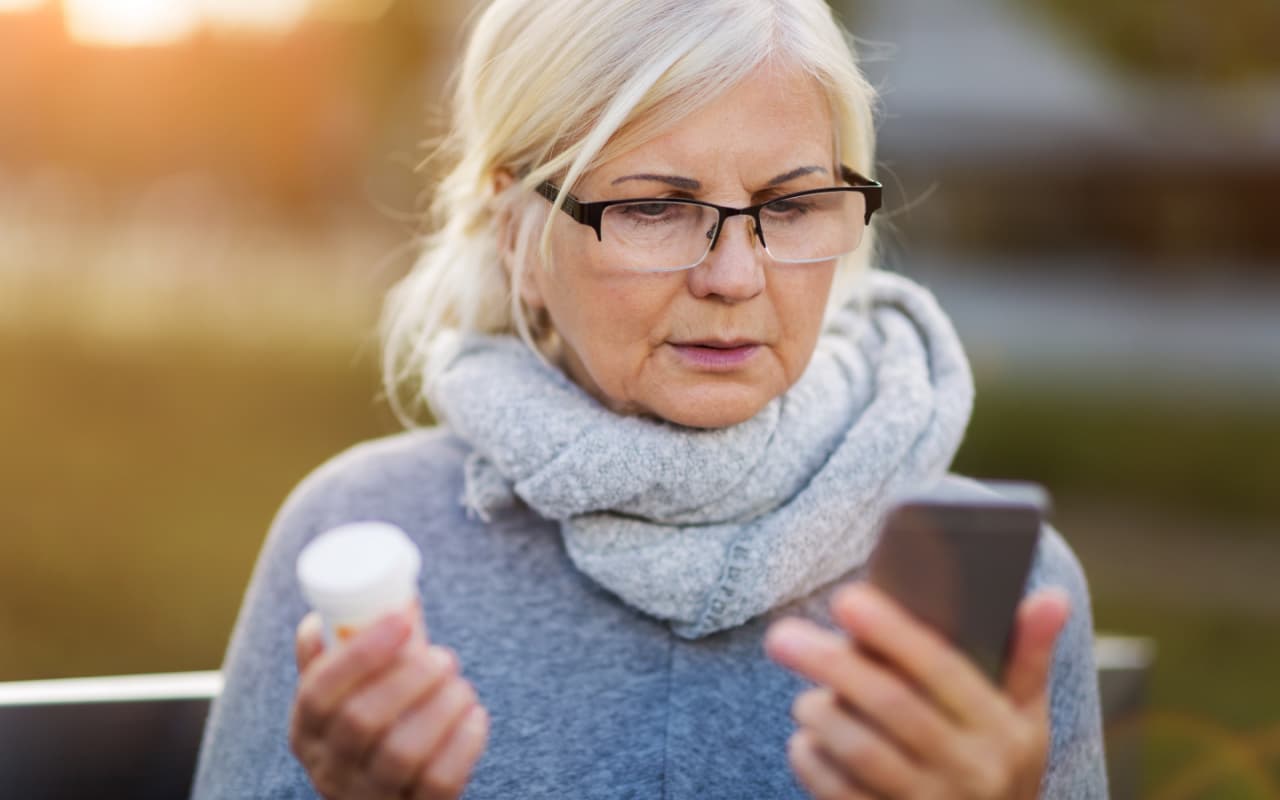The 5 Best Vitamin B12 Supplements of 2025

Written by Sophie Bebeau on Mon Dec 30 2024.

Vitamin B12 is one of the five essential vitamins and minerals recommended for adults over age 50 (the other four being Vitamin D, Calcium, Magnesium, and Potassium.) Its two main purposes are to help your body make DNA (the genetic material in your cells) and to help with the development of brain and nerve cells.
Having healthy levels of Vitamin B12 is especially important as we age because it can decrease your risk of developing dementia. While we can get Vitamin B12 through much of the food we eat, adults often need to supplement their B12 with an over-the-counter vitamin as they age.
Benefits of Vitamin B12
In addition to helping the body create DNA and develop brain and nerve cells, Vitamin B12 also helps create red blood cells, protects nerves, and prevents eyesight from getting worse. It also plays a key role in producing energy throughout the body.
Some of the foods most rich in Vitamin B12 include:
Clams
Sardines
Lamb liver
Beef
Tuna
Trout
Salmon
Whole milk
Eggs
If you're eating plenty of fish, eggs, and dairy, you are likely getting plenty of B12, but because the ability to absorb Vitamin B12 tends to decrease with age, it's important to consider adding a supplement if you're over the age of 50.
Vitamin B12 deficiency
Many things can cause Vitamin B12 deficiency, but it is most commonly found in older adults who:
Take certain medications, like antihistamines, antacids, or certain diabetes medications
Have low levels of stomach acid due to medications or digestive problems
Are heavy drinkers
Have chronic stomach or small intestine issues like Crohn's disease
Have had surgeries to remove some or all of the stomach or small intestine
Have an autoimmune disease
Follow a plant-based diet
Despite the fact that Vitamin B12 deficiency is common in older adults, it often can go overlooked for years because it progresses very slowly, and the symptoms can be easily explained by aging or other common ailments.
Vitamin B12 deficiency symptoms
The most common signs of Vitamin B12 deficiency in older adults are:
Extreme tiredness (fatigue)
Lack of energy
Anemia
Memory problems
Poor vision
Difficulty with walking or coordination
Tingling hands and/or feet (commonly called neuropathy)
Pale or slightly yellow-tinged skin
When and how to test for Vitamin B12 deficiency
If you suspect that you or an aging loved one may have a Vitamin B12 deficiency, there's good news. Vitamin B12 deficiency can be easily detected with a blood test and is easily treatable with a daily supplement.
If you or a loved one are experiencing any of the symptoms listed above, talk to your doctor about getting your blood tested for low Vitamin B12 levels. If your blood test shows that you are Vitamin B12 deficient, then your doctor will likely advise you to begin a Vitamin B12 supplement regimen.
Types of Vitamin B12 supplements
There are two common ways to take supplemental B12 – orally or through injection.
Vitamin B12 injections
A Vitamin B12 injection is commonly administered every 7 to 10 days until levels stabilize, and then the patient continues with a maintenance injection less frequently or moves to an oral supplement. However, the frequency of injections can vary widely depending on the individual's B12 levels. Some may need shots as frequently as every day for a period of time, while others may only need them every few months.
A Vitamin B12 injection needs to be administered at a doctor's office by a doctor or a nurse, so regular office visits will be required for this treatment.
Oral Vitamin B12 supplements
High-dose B12 supplements can be prescribed or obtained over the counter and can be found in pill form or as lozenges. Oral supplements tend to be preferred to injections because they can be taken at home and are easily added to an existing medication regimen. Plus, let's face it, nobody really likes to get shots!
Transdermal patches and nasal sprays
Both transdermal B12 patches (patches that stick to the skin) and B12 nasal sprays are relatively new to the market and are not commonly prescribed by doctors. More study is needed on both of these methods of treatment to determine their effectiveness compared to B12 injections and oral pills and lozenges.
Vitamin B12 dosages
There is no one-size-fits-all Vitamin B12 dosage for older adults. The recommended daily intake of Vitamin B12 for adults over age 50 is 2.4 micrograms a day, but an older adult who is diagnosed with a B12 deficiency may be prescribed a supplement as high as 1,000 micrograms per day.
Dosage recommendations will vary widely from person to person and depend on your B12 levels and any underlying health conditions. It's important to follow the treatment plan that your doctor gives you.
Is it possible to take too much Vitamin B12?
Because the body only absorbs the amount of B12 that it needs and flushes the rest out in your urine, it's nearly impossible to build up a toxic level of Vitamin B12, even when taking a high-dose supplement.
If you've been diagnosed with a Vitamin B12 deficiency, your doctor will likely recommend regular follow-up tests to assess your levels and find the right maintenance dose.
Top 5 best Vitamin B12 supplements for older adults
1. Geri Care High Potency Vitamin B-12
Fast Facts
comes in tablet form
1,000 micrograms per tablet
100 tablets per bottle
2. Geri-Care Vitamin B-12
Fast Facts
comes in tablet form
100 micrograms per tablet
100 tablets per bottle
3. Geri-Care High Potency Vitamin B-12
Fast Facts
comes in tablet form
500 micrograms per tablet
100 tablets per bottle
4. Mason Natural Vitamin B12
Fast Facts
comes in tablet form
1,000 micrograms per tablet
100 tablets per bottle
5. Nature's Bounty Quick Dissolve B-12
Fast Facts
dissolving tablet melts under the tongue in 30 seconds
2,500 micrograms
75 tablets per bottle
cherry flavored
Talk to your doctor.
If you suspect you or a loved one may have a Vitamin B12 deficiency or could benefit from a Vitamin B12 supplement, talk to your doctor about symptoms and testing. You should never begin taking a new supplement without first consulting with your medical care provider.
After you've talked with your doctor, if you need help figuring out the right Vitamin B12 supplement for your needs, talk to one of Carewell's caregiving specialists today. Call (800) 696-CARE or email support@carewell.com. We're here to support you!
Other Articles You May Like

OTC Medicine: Can You Buy Over The Counter Online?
Thanks to the rise of smartphones, tablets, and other web-based technologies, many OTC drugs can now be purchased online. In this blog post, we take a closer look at OTC medications, explain some of their benefits, and highlight a few of our best-selling products.
Medically Reviewed by Kiera Powell, R.N.

Pros and Cons of Nutritional Supplement Drinks for Older Adults
Many older adults and their caregivers often consider adding a nutritional supplement drink to the diet to help address or prevent weight loss. However, these drinks may not be the ideal solution for every individual or situation. To help you make informed decisions, we've developed a comprehensive guide. Learn more about nutritional shakes for seniors, including their benefits, potential drawbacks, and when to consider incorporating them into your diet or that of a loved one.
Read More >
Sophie Bebeau is a writer, graphic designer, poet, and multidisciplinary artist living in Green Bay, Wisconsin. When she’s not writing or making things for the internet, she can be found cross-stitching, writing poetry, and snuggling on the couch with a cup of tea and her husband, son, and dog, Buttercup.